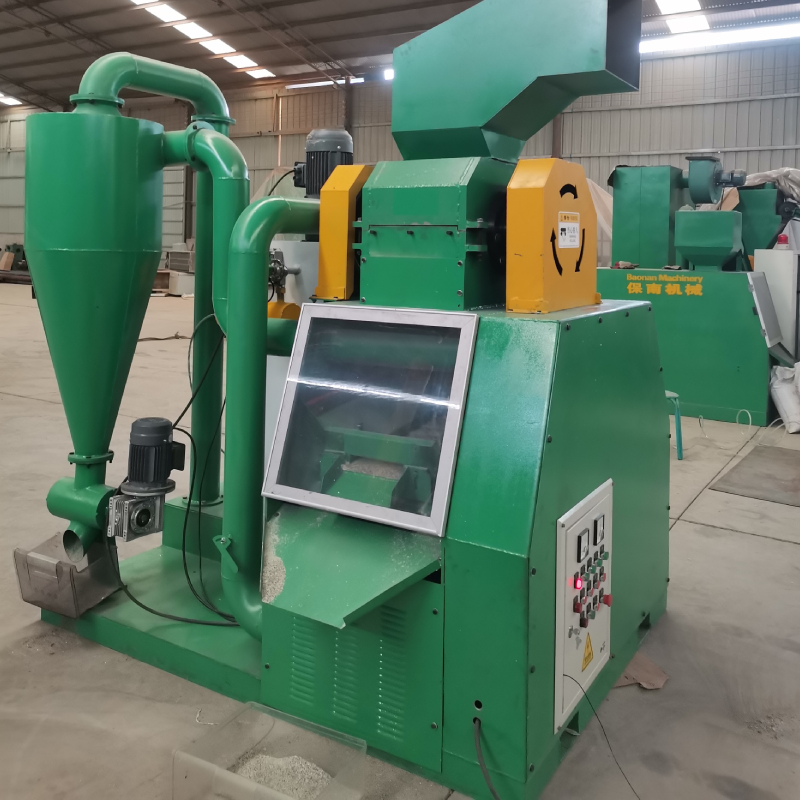

Dec . 15, 2024 04:08 Back to list
Understanding Scrap Metal Recycling Plants A Sustainable Approach to Metal Waste Management
In today's rapidly industrializing world, the importance of sustainable practices cannot be overstated. One area that has seen significant growth in sustainable efforts is the recycling of scrap metal. Scrap metal recycling plants play a critical role in transforming discarded metal into reusable materials, thereby reducing waste and conserving natural resources. This article delves into the significance, processes, and benefits of scrap metal recycling plants.
The Significance of Scrap Metal Recycling
Scrap metal refers to metal waste that can be recycled, including old vehicles, construction debris, industrial scrap, and even household items. The recycling of scrap metal is crucial for several reasons. Firstly, it contributes significantly to environmental protection. By recycling metals, we reduce the need for mining new ores, which can deplete natural resources and lead to environmental degradation. Secondly, recycling conserves energy. The process of extracting and processing metals from virgin ores is energy-intensive; in contrast, recycling scrap metal generally uses 75% less energy. Moreover, recycling helps decrease greenhouse gas emissions, providing a more environmentally friendly option for metal production.
The Operational Processes of Scrap Metal Recycling Plants
Scrap metal recycling plants operate through a series of systematic processes designed to efficiently recover materials. The first step is collection, where scrap metal is gathered from various sources, which may include construction sites, manufacturing facilities, and consumer products. Once collected, the scrap metal is transported to the recycling plant, where it undergoes sorting.
At the plant, metals are sorted into ferrous (containing iron) and non-ferrous categories. Ferrous metals include items like steel and iron, while non-ferrous metals encompass aluminum, copper, brass, and others. Sorting is typically done using a combination of manual labor and high-tech machinery, including magnets for ferrous metals and advanced sensors for non-ferrous materials.

After sorting, the metals are cleaned and processed. This may involve shredding, which breaks the metals into smaller, manageable pieces. The shredded metal is then melted down in furnaces at high temperatures. The molten metal is poured into molds to create ingots, which can be transported to manufacturing facilities to be formed into new products.
The Benefits of Scrap Metal Recycling
The benefits of scrap metal recycling are manifold. Economically, it creates jobs and stimulates local economies. Scrap metal recycling facilities require a workforce for collection, sorting, processing, and administration, thus providing employment opportunities. Furthermore, many metal manufacturers rely on recycled materials, creating a demand for scrap metal and ensuring a continuous cycle of resource reuse.
Environmentally, recycling metals reduces landfill waste. Scrap metal often takes up considerable space in landfills, where it can take years to decompose. By recycling, we can significantly reduce the volume of waste sent to landfills, contributing to a cleaner and healthier planet.
Socially, recycling promotes responsible consumer behavior. As awareness of environmental issues grows, consumers increasingly appreciate the importance of recycling. Scrap metal recycling plants often engage in educational initiatives to inform the community about the benefits of recycling, encouraging responsible practices among consumers.
Conclusion
In conclusion, scrap metal recycling plants are vital components of a sustainable industrial ecosystem. They not only facilitate the efficient processing of metal waste but also play a significant role in conserving natural resources, conserving energy, and reducing environmental impact. As the demand for metals continues to rise, the role of these recycling plants will only become more critical in promoting a circular economy. As individuals and communities, supporting scrap metal recycling is a step towards a more sustainable future, one where we can enjoy the benefits of modern life without compromising the health of our planet.
Latest news
Troubleshooting Common Eddy Separator Problems
NewsJul.04,2025
The Role of Metal Recycling Plants in Circular Economy
NewsJul.04,2025
The Impact of Recycling Line Pickers on Waste Management Costs
NewsJul.04,2025
Safety Features Every Metal Shredder Should Have
NewsJul.04,2025
How Industrial Shredders Improve Waste Management Systems
NewsJul.04,2025
How Cable Granulators Contribute to Sustainable Recycling
NewsJul.04,2025